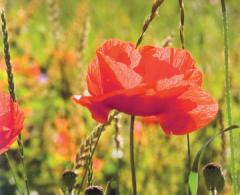This Article From Issue
November-December 2016
Volume 104, Number 6
In this passage adapted from her review of The Science Writers’ Essay Handbook: How to Craft Compelling True Stories in Any Medium, by Michelle Nijhuis, Katie L. Burke reflects on one of the book’s key insights: The writing process and the scientific process are more similar than they seem. You can find the full review here.
In her new book, The Science Writers’ Essay Handbook, Michelle Nijhuis celebrates the beauty of the essay craft. Essays are best defined by what they are not, she explains. After detailing all the forms that don’t count as an essay (for example, a traditional news story or the “five-paragraph essay” you might have written in a high school or college class), she describes the form as “stories that examine other stories.” To identify what makes an essay work, Nijhuis says, “Good essays have more in common with good science, in that they begin not with a thesis but more tentatively, with a question.”

Indeed, she points out, the essay and the scientific method both arose around the same time in the 1600s and exemplify Enlightenment thinking. Before the 1900s, Nijhuis emphasizes, most scientists, including Charles Darwin and Ada Lovelace, wrote essays when describing their research results. As with science, a good essay satisfies through the journey of exploration, not the conclusion’s scope or certainty. By framing the writing process in this way and by offering practical aids—for example, tips for curing common writing ailments and starting points for organizing one’s thoughts—Nijhuis empowers her reader, the writer.



American Scientist Comments and Discussion
To discuss our articles or comment on them, please share them and tag American Scientist on social media platforms. Here are links to our profiles on Twitter, Facebook, and LinkedIn.
If we re-share your post, we will moderate comments/discussion following our comments policy.